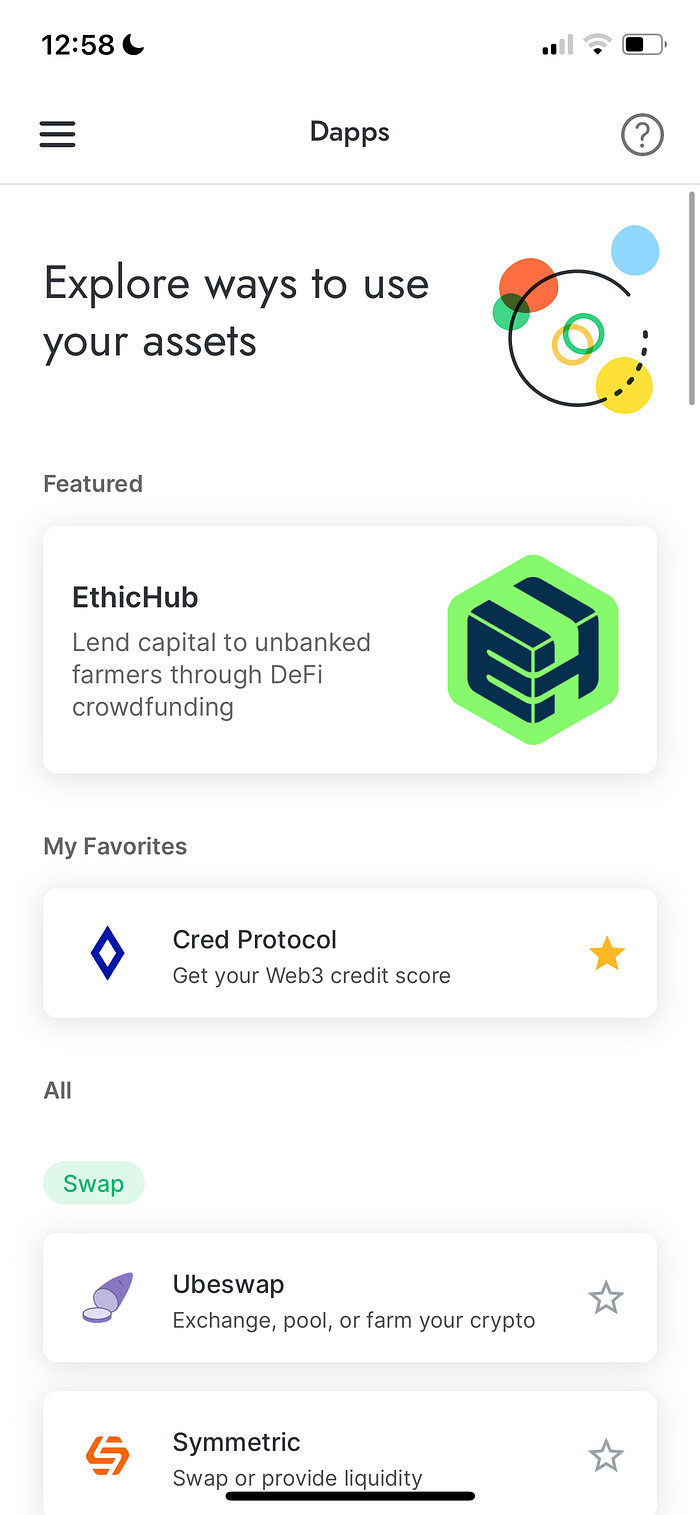Cred Protocol now on Celo
Cred Protocol’s excited to announce the launch of the Cred Score on Celo, enabling the Celo community to establish their creditworthiness, and builders within the Celo ecosystem to embed risk data at the heart of their products and processes.

We’re particularly pleased that the Cred Score will now include Celo activity, because it’s an ecosystem that closely aligns with Cred’s mission. Celo’s mission is to build a regenerative digital economy that creates conditions of prosperity for all. With users across 150+ countries, Celo is firmly committed to a fair financial future for all, founded on the belief that through connections and purpose it is possible to create a lasting change in the economy for the better.
Cred Protocol’s supporting this mission by bringing trust and transparency to web3 by quantifying lending risk at scale. Our Cred Score enables individuals to track their creditworthiness and through a track record of healthy financial behaviour, build it over time, ensuring that they’re rewarded for being a trustworthy participant in the digital assets world.
Similarly, our suite of risk data APIs enable businesses to build differentiated products grounded in an understanding of credit risk, ensuring that they bring true utility to their users.
Accessing the Score
Cred has partnered with Valora, the leading wallet in the Celo ecosystem, making it possible for any user with Celo transactions to see their credit score within the Valora mobile app. To access your score:
- Download the Valora App
- Connect your wallet
- In the ‘Dapps’ section, search ‘Cred Protocol’
- Connect your wallet and see your score
- Remember to favorite the ‘Cred Protocol Dapp’ in Valora so you can easily check your score in future
If you are a business interested in building on Celo with the Cred Score, please contact the Cred Protocol team on Twitter or Discord

Understanding the Score
Cred Protocol’s credit score (in the range 300–1000) covers over 200m accounts and is informed by on-chain transaction activity associated with a single account address, or collection of accounts addresses (”identity-based scoring”). This data is sourced from 7 chains and over 30 lending protocols, this broad coverage ensures that wherever digital asset activity is taking place, it’s informing the score.
Examples of account activity include (but aren’t limited to): account age, transaction frequency, total asset value, total debt value, percentile of asset value relative and percentile of debt value relative to the population of accounts, asset composition (ie. stablecoins vs. altcoins).
Transaction history is correlated to the account owner’s ability to fulfill obligations, specifically, repay loans. Cred Protocol predicts the likelihood of borrowers being liquidated or defaulting on loans in the next 90 days. This probability is evaluated across the population of accounts to produce a “score” that measures relative creditworthiness

Using credit risk intelligence
Across the worlds of web3 and fintech, businesses are already using the Cred Score to enable a wide variety of use cases:
- Credit Rating corporate borrowers
We provided a credit rating for Fluna, an African FinTech servicing multiple countries across the continent. Informed by our rating, they’ve been able to access the global pool of decentralized capital available on Polygon, through the Atlendis lending protocol. We were able to provide a comprehensive risk evaluation leveraging our ability to ingest data both on-chain & off-chain data to provide a Credit Rating and Credit Report.
- Lending Protocols qualifying access & making decisions
We have been supporting the lending protocol Teller to embed on-chain risk analysis throughout their underwriting process, from qualifying initial loan applications, determining loan terms based on risk metrics, and monitoring repayment performance.
- Identity Protocols attesting creditworthiness
In traditional finance, identity and creditworthiness and intrinsically linked, and identity is the thing that incentivizes behavior and creates consequence. In web3 users are pseudonymous by default, and it has been amazing to work with protocols who are tackling the subject of identity. Working with Quadrata, Masa, Krebit, Convospace has demonstrated the versatility of Cred Protocol in supporting a variety of approaches to identity in web3 from Soul Bound tokens to Verifiable Credentials.
We’d love to talk to participants in the Celo ecosystem to help them integrate the Cred Score on Celo and bring about lasting change in the economy as we know it.
How to build
If this article has inspired you to build using the Cred Protocol, then you can create a free account on our Developer Portal here.
If you have any questions for the team please reach out to any of the team across our social media channels and we would love to help.
To find out more about Cred please visit our website, subscribe to our mailing list, or join our community on Discord. Tweet us @cred_protocol to ask about specific topics.
